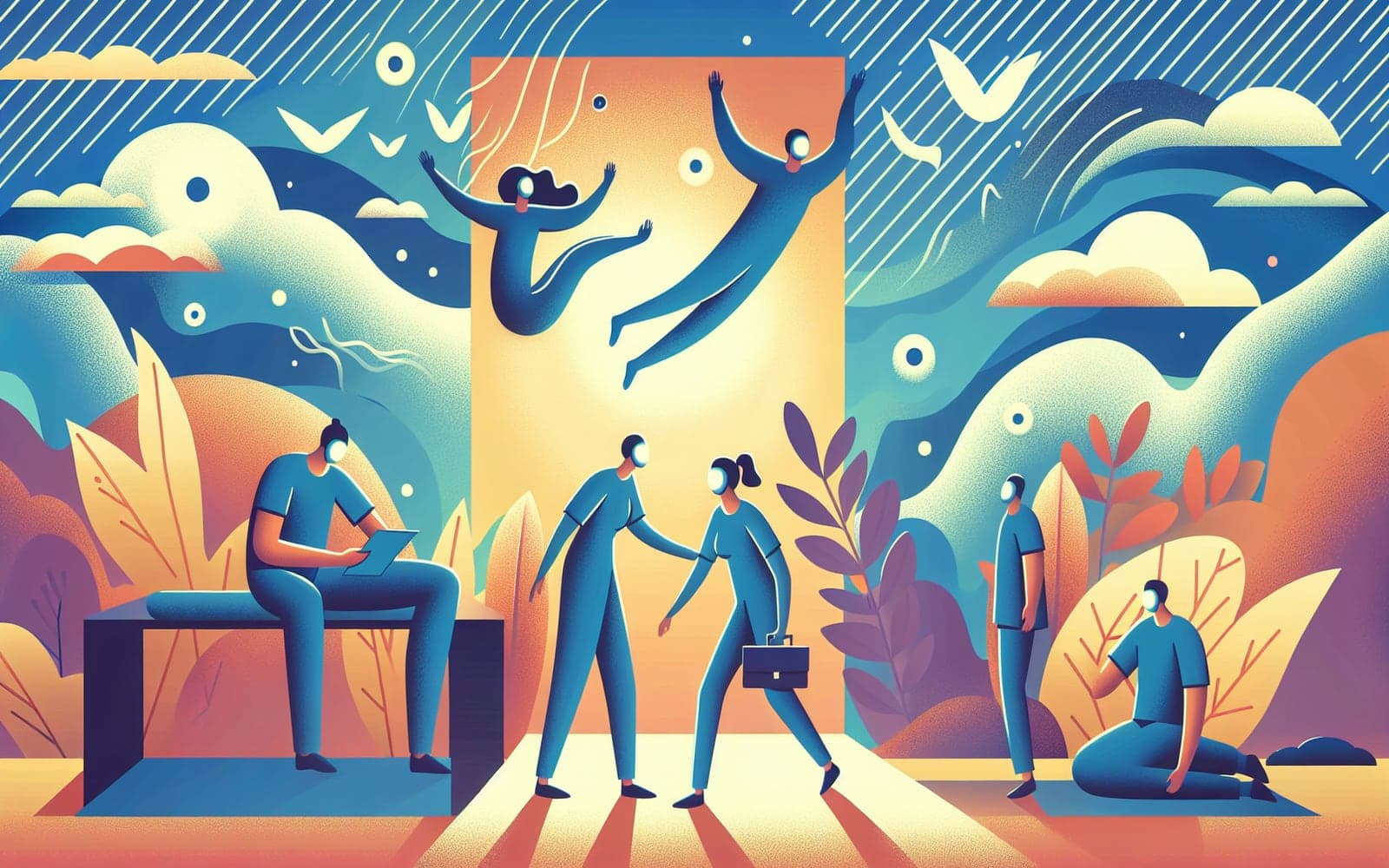Contents
-
The Tilting World: Visual Distortions
-
Ears Behaving Strangely
-
Cognitive Fog and Fatigue
-
Emotional and Psychological Effects
Beyond the Spin: Lesser-Known Symptoms of Vertigo You Shouldn't Ignore
Beyond the Spin: Lesser-Known Symptoms of Vertigo You Shouldn't Ignore
More Than Meets the Eye
When you think of vertigo, you probably imagine a spinning sensation. But this complex condition can manifest in surprising ways that many people overlook.
Contents
-
The Tilting World: Visual Distortions
-
Ears Behaving Strangely
-
Cognitive Fog and Fatigue
-
Emotional and Psychological Effects
The Tilting World: Visual Distortions
Some vertigo sufferers experience a phenomenon called 'visual vertigo.' This can make you feel like the world is tilting or moving when you're in visually complex environments. Crowded places, patterned floors, or even scrolling on a computer screen can trigger these symptoms. If you find yourself avoiding certain visual situations, it could be a sign of vertigo.
Ears Behaving Strangely
Vertigo doesn't just affect balance - it can cause unusual ear symptoms too. You might experience a feeling of fullness or pressure in one or both ears. Some people report changes in hearing, like muffled sounds or increased sensitivity to loud noises. Tinnitus, or ringing in the ears, can also accompany vertigo in some cases.
Cognitive Fog and Fatigue
Vertigo can take a toll on your mental clarity. Many people report difficulty concentrating or feeling 'fuzzy-headed' during or after vertigo episodes. This cognitive impact, sometimes called 'brain fog,' can be frustrating and affect daily activities. Extreme fatigue is another often-overlooked symptom that can accompany vertigo.
Emotional and Psychological Effects
The disorienting nature of vertigo can have psychological impacts. Some people develop anxiety about future episodes or fear of certain movements or situations. In severe cases, this can lead to avoidance behaviors or even agoraphobia. Recognizing these emotional symptoms is important for comprehensive treatment.
FAQs
Can vertigo cause memory problems?
Some people report short-term memory issues during episodes.
Is motion sickness related to vertigo?
They can be connected, as both involve balance system disruptions.
Can vertigo affect your sleep?
Yes, it can disrupt sleep patterns and quality.
Connecting the Dots
Recognizing these less obvious symptoms can lead to earlier diagnosis and more effective treatment of vertigo.
Additional References
-
Bisdorff A, et al. Classification of vestibular symptoms: towards an international classification of vestibular disorders. J Vestib Res 2009; 19:1-13.
-
Staab JP. Chronic Subjective Dizziness. Continuum (Minneap Minn) 2012; 18:1118-1141.
This article has been reviewed for accuracy by one of the licensed medical doctors working for Doctronic.












